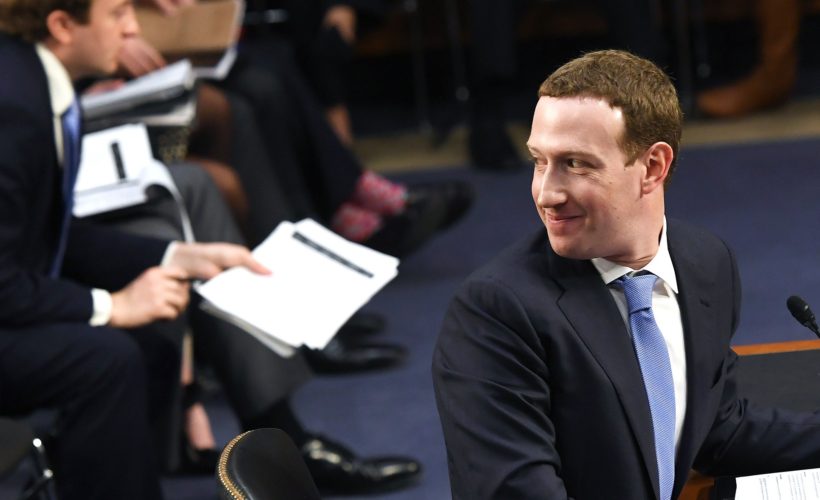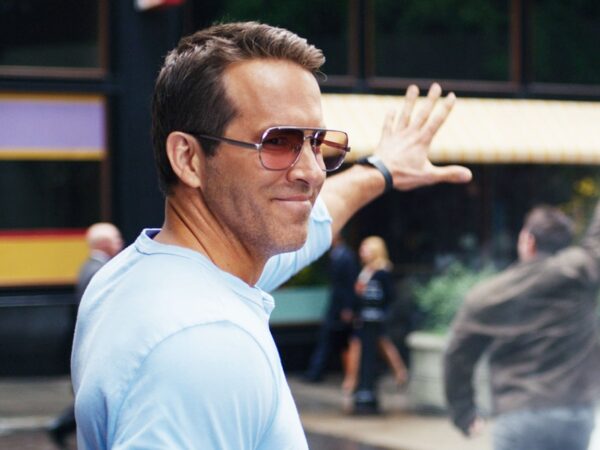If you are part of the rarified group of tech insiders who mostly live in the Bay Area, your perception of Mark Zuckerberg is different. You have likely done business with Facebook: your company’s been bought by it, or you’ve been crowded out of a promising market when Zuckerberg decided to launch there. You’ve driven past Zuckerberg’s San Francisco compound in the Mission, or given birth at Zuckerberg San Francisco General Hospital. You know he is an astute businessman who hasn’t worn flips flops to a product release in more than a decade. You let go of the idea of Mark Zuckerberg as an awkward teenager long ago.
Which is why in the wake of Zuckerberg’s Congressional hearings, most of the two-dozen Valley insiders I spoke to—including Facebook alumni and many people who chose to speak on background—were so impressed by his performance. In the showdown between Zuckerberg and Washington, they felt Facebook’s well-spoken founder had won, proving to everyone else what they’d known all along: Washington politicos are no match for Silicon Valley. For these entrepreneurs, Zuckerberg is a stand-in for the tech industry broadly—an industry that long has been understood as a group of rule-breaking upstarts. “In some ways, it felt like I was rooting for our person from Silicon Valley, as controversial as he is,” says open source advocate Chris Messina, who has worked both Google and Uber among other significant tech giants.
The hearings were convened because people were concerned about tech, but to the tech industry, they only succeeded in confirming an entrenched conviction: people outside Silicon Valley would have you believe the problem with Facebook is tech, when really the issue is our own ignorance.
With a confident air in his crisply pressed suit, Zuckerberg demonstrated that the techies can answer for their inventions. In fact, given the pedantic questions brought to Zuckerberg at the hearings, tech’s entrepreneurs might be the only group that can successfully chart the future of tech. “The gap between DC and Silicon Valley is wide and deep,” said Mightybell cofounder Gina Bianchini, who has been developing social software since 2004. “If anyone thought that regulation or anti-trust would threaten Facebook’s dominance, I think that notion has been put to bed.”
According to most of the people I spoke to, Facebook’s challenge at the hearings can be reduced to two issues. First off, the general population, including many of our elected representatives, just doesn’t understand how the company works. Second, Facebook is one of a crop of network effect businesses powered by the rise of the internet. Because these businesses operate differently than those in more traditional industries, they must be regulated differently. Congress, and by extension regulators, don’t understand enough about these businesses to regulate them, and risk further entrenching their power by attempting.
Tech’s New Normal
According to Stefan Weitz, who spent 14 years at Microsoft, and now sits on a half-dozen startup boards, most people don’t understand how “free” products work. “The way in which [Facebook] makes money exceeds most normies’ comprehension abilities.” He notes that advertising businesses like Facebook use the information a user uploads, which can be controlled to some degree through privacy settings. But they also use information derived from a user’s actions on the platform—what pages she visits, for example, and in what order. “Everything one does on the platform, even launching the app, provides Facebook with yet another sliver of insight,” he says. To the degree consumers are uncomfortable, he says, “all the privacy controls in the world won’t change that.”
Weitz believes most people find that trade-off worth it. “Consumers wouldn’t want a non-personalized Facebook,” he told me. It’s a sentiment I heard repeatedly in conversations with investors, former Facebook employees, and entrepreneurs: people don’t care about data-collection much as Congress would have you believe they do.
Many feel that Facebook was unfairly targeted for practices that are standard throughout large companies, practices that are poorly understood. “We keep focusing on Facebook having all our likes,” says Adi Bittan, who founded and runs the enterprise startup IMPowers Solutions, which develops apps for Facebook and other tech platforms. “[We’re] not really considering that other companies…continue to collect data on us and some of them sell it, directly or indirectly.”
“Visa has a ton of transaction data,” she adds. “Could they be using that data to help advertisers target me better? Probably. They might be doing that right now.”
Though nearly everyone I spoke to felt that Facebook’s power needed to be curbed, most felt regulation was the wrong approach. Messina, who is best known for inventing the # as a symbol to represent groups on the social web (#winning), said that because Congress doesn’t understand network effect businesses, federal regulation would be dangerous. He was critical of South Carolina Senator Lindsey Graham’s comparison of Facebook to the car industry. “A car isn’t a social network, because there are no network effects,” he said. A better comparison, Messina believes, would be email, which introduced interoperability so that email systems could exchange messages with each other. But when companies make that transition, says Messina, they often stop innovating and their systems go stagnant. “What’s changed about email lately?” he asked me.
Like Weitz and several others, Messina believes that Zuckerberg’s intentions are good. Sure the company may be made up of, as Weitz puts it, “naïve technocrats who got over their skis.” But Messina believes they are the best people to reign the company in, and that they should be believed in their intentions to do so.
Not everyone was so quick to let Facebook off the hook for the evolution of its product, or its impact. Many are uneasy about the extent of Zuckerberg’s power. “There’s a sense that the chickens are coming home to roost,” says Caterina Fake, an investor and serial entrepreneur who has been designing social software since she cofounded Flickr in 2004. Fake points to a Facebook-led shift in social media when the software ceased to prioritize building connections between people, and instead began trying to win increasing amounts of users’ attention. “Everybody knew that when [Facebook] started prioritizing things by what got the most attention, it was the beginning of the end,” she says. “Each step along the way, there were cries of outrage,” she said.
The rest of the world may perceive Zuckerberg’s power to be under threat, but for these tech insiders, the hearings were an introduction of Silicon Valley business practices into the staunchest industry of Washington DC. These are people who came up alongside Zuckerberg, and whose values were shaped by the same ideals. They envision a future made better by the tools that they, too, are helping to create. Of course they don’t want Facebook to dominate their industry, robbing competitors of opportunities, because they believe it’s bad for tech (and bad for them!) But then again, they don’t want Facebook regulated, because it means more trouble for their own businesses. And after last week’s hearings, they’re more confident their point of view will prevail.
Zuckerberg Goes to Washington
-
Within Facebook, a sense of relief after Mark Zuckerberg’s Hearings.
-
A consent decree that Facebook signed with a federal agency in 2011 hasn’t prevented additional privacy missteps.
-
WIRED seminal insider look at the past two years at Facebook.
Source:WIRED











